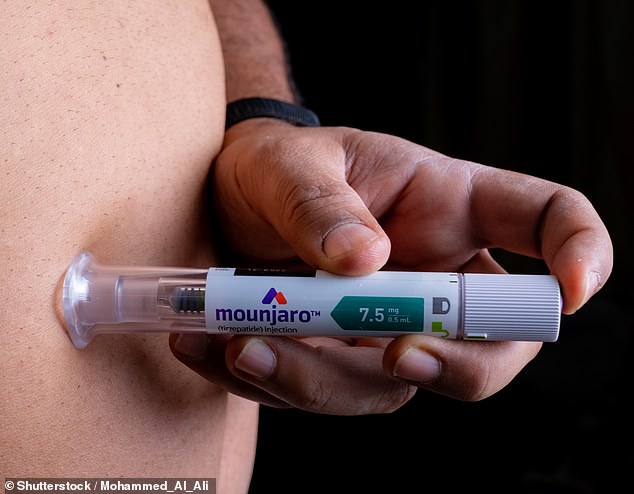A drug once dubbed the “King Kong” of weight-loss injections helps women lose more weight than men, a study has found.
The analysis showed that women lost up to a quarter of their body weight by using Munjaro for up to 20 months.
For men, the figure was up to 18% in a study of more than 4,500 obese adults.
Experts said the reasons for the change were still unknown, but added that the results showed the measures were an effective way to tackle obesity in both men and women.
The drug, which is injected once a week, is in a class of drugs called GLP-1 agonists that reduce food intake by mimicking hormones that suppress appetite.

The once-weekly injections are a type of drug called a GLP-1 agonist, which mimics a hormone that suppresses appetite and reduces food intake.



The analysis showed that women lost up to a quarter of their body weight by using Munjaro for up to 20 months.
Clinical trials have also shown that the drug, tirzepatide, boosts production of insulin, a hormone that regulates blood sugar levels, which is essential for controlling type 2 diabetes.
The drug was provisionally approved by British regulators earlier this year for people with a BMI of 35 or above and at least one weight-related comorbidity, such as heart disease or type 2 diabetes.
Eli Lilly researchers analyzed results from four trials involving 4,677 obese adults who took the drug for up to 88 weeks.
In all trials, tirzepatide was associated with significant weight loss compared with placebo.
The findings, presented at the European Association for the Study of Diabetes (EASD) in Madrid, showed that men and women were equally successful in achieving weight loss targets of 5%, 10% and 15%.
However, the effect was greater in women, with weight losses ranging from 11.5 to 27.6% compared with 8.8 to 18.9% in men.
Dr Luis Emilio Garcia Pérez, presenting the findings, said more research was needed to understand why women lose more weight.
“We don’t have an explanation for this right now,” he said. “It may have to do with body fat distribution, it may have to do with pharmacology, but we don’t have the answers yet.”
He added, “The safety profile was broadly similar by gender, although the incidence of nausea and vomiting was numerically higher in women.”

